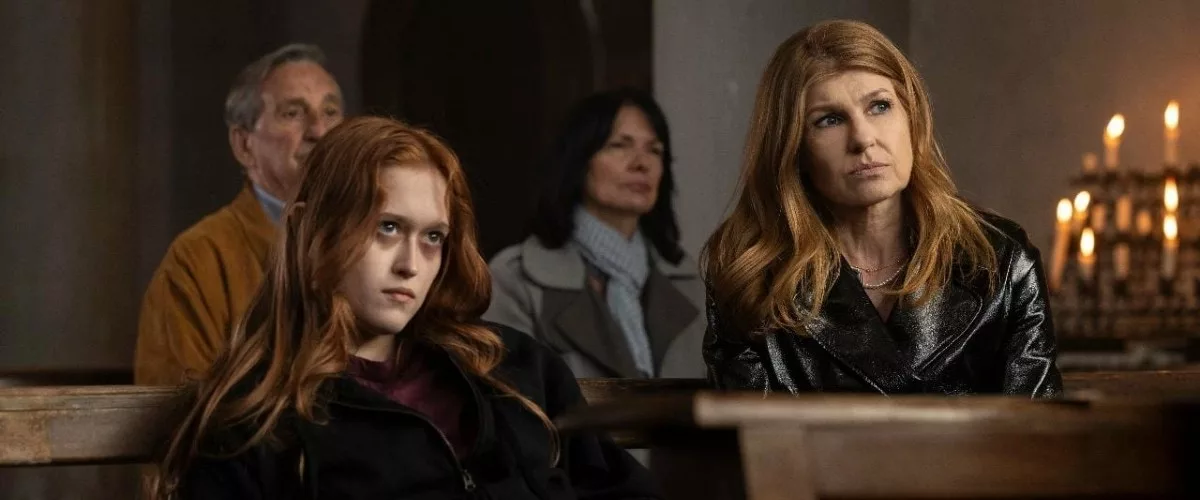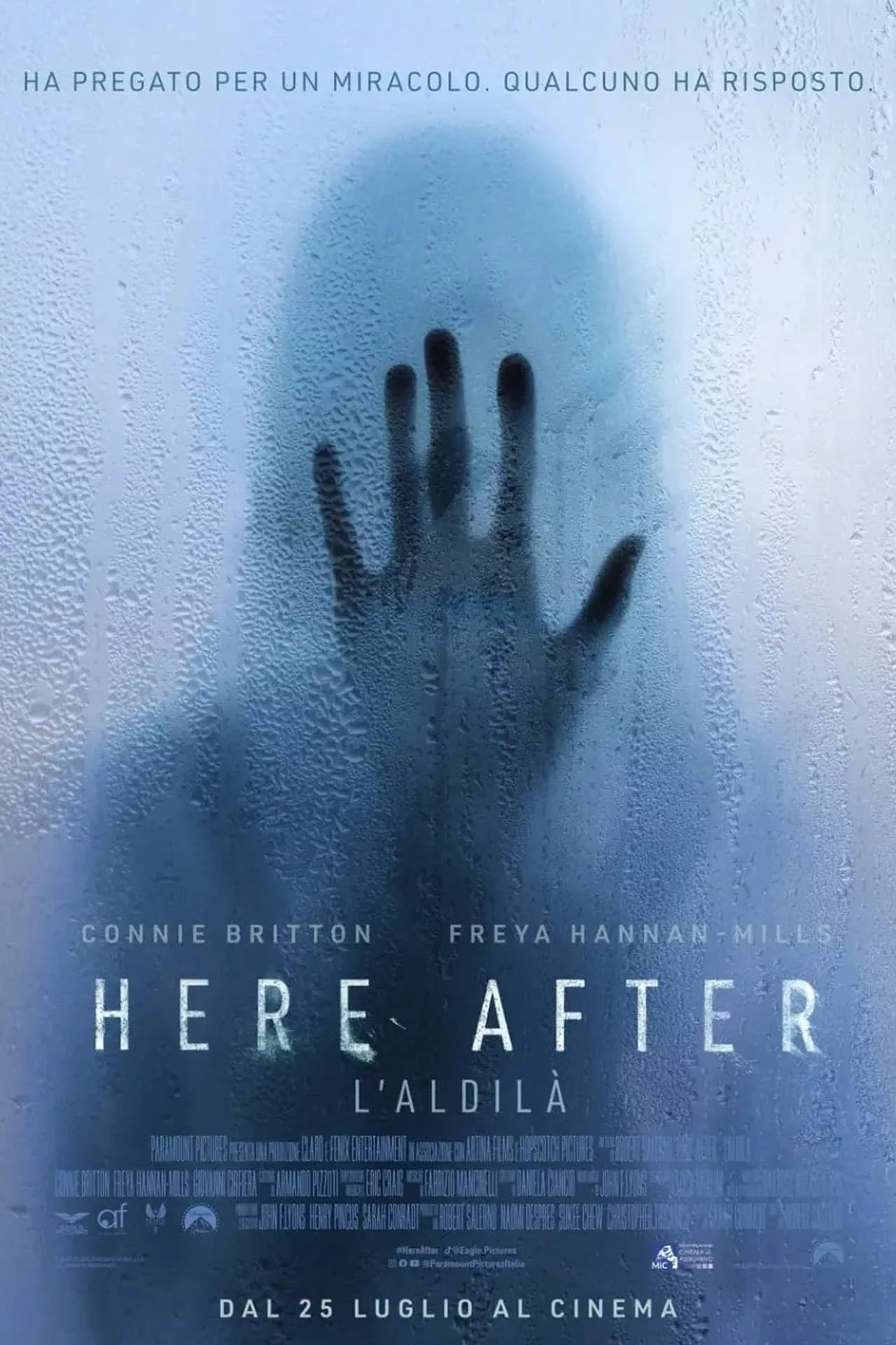Connie Britton does her best to bring genuine substance and emotion to the clichéd and airless "Here After," but she can only do so much.
The debut feature from longtime producer Robert Salerno ("21 Grams," "A Single Man," "I'm Thinking of Ending Things") treads familiar horror territory, with its creepy kid behavior, suppressed family trauma and heavy Catholic imagery. As director, Salerno favors canted angles and constant rainfall to create a mysterious mood. But his approach quickly grows repetitive, and we've seen it countless times before. He's worked on so many inventive indies over the years -- "Vox Lux" and "Nocturnal Animals" are also among his impressive credits – that it's sort of baffling as to why he'd want to tell this particular story now that he's at the helm himself.
Based on a script by Sarah Conradt, "Here After" follows the plight of Britton's Claire Hiller, an American divorcée living in Rome and teaching at an all-girls school. Her teenage daughter, Robin (Freya Hannan-Mills), is an accomplished pianist who dreams of attending an elite conservatory. She is also selectively mute, and expresses herself through sign language and her music, but seems to maintain a sunny disposition. There's not much to her, really.
One afternoon, on the way to an important audition, Robin suffers a serious bike accident (in the rain, of course). Doctors pronounce her clinically dead for 20 minutes. Miraculously, though, she gasps back to life – but she's a little... different. For starters, she can speak, which she hadn't done for about a decade. But she's also uncharacteristically surly; she wants to watch cartoons or blast rock music all day, and her eyes darken as she brandishes a devious smile.
Is Robin just a teenager undergoing all the usual hormonal highs and lows? Is she possessed? Or is Claire losing her mind? The question of what's real and what's in the mother's imagination holds some allure for a little while, until "Here After" offers the same sorts of obvious scares again and again. Claire gets some emotional support from her colleague Viv (Babetida Sadjo, a warm and welcome presence), but her ex-husband (Giovanni Cirfiera) is essentially useless. Eventually she goes to see a priest, insisting "only God
can help." This turn toward faith doesn't jolt the film with any sort of meaningful emotional impact or character arc; she's been wearing a giant cross around her neck from the first moment we see her, of course she's going to rely on prayer in a time of desperation. But Britton's always so good, she manages to make Claire's anguish feel believable and grounded, even though its origin seems supernatural.
Britton's subtlety is especially on display during the film's climax, a dreamlike sequence that takes a formal departure from everything that preceded it. The pacing during this segment is a bit too languid, given how revelatory it's meant to be, causing it to feel like it's dragging on longer than it should. But Salerno
takes such a chance here stylistically, working with cinematographer Bartosz Nalazek, that it makes you wish he'd incorporated this kind of daring approach throughout.
Instead, this sluggish tale of remorse and forgiveness mostly remains bland and distant, like the many generic aerial shots of Rome that it offers.




















